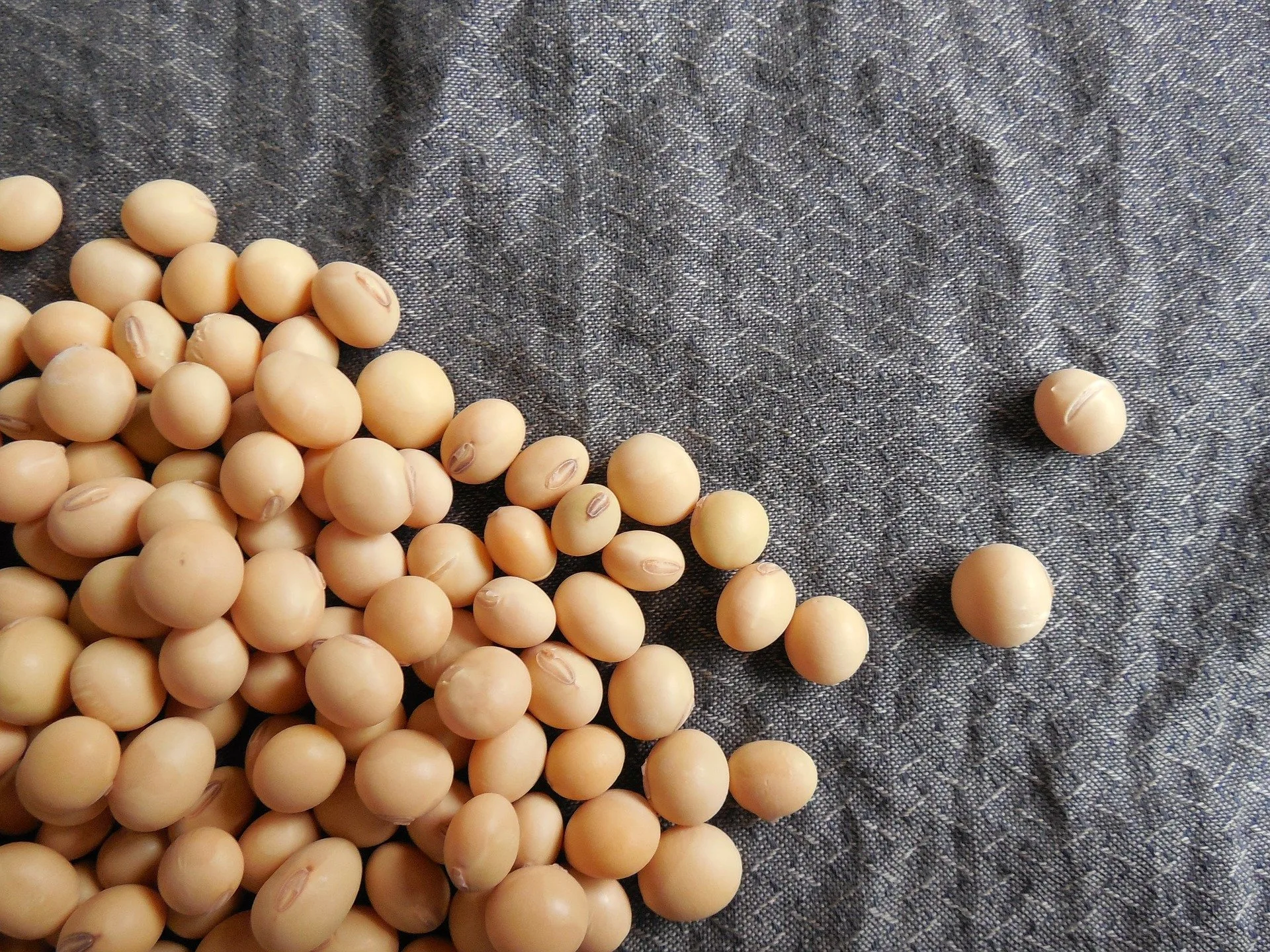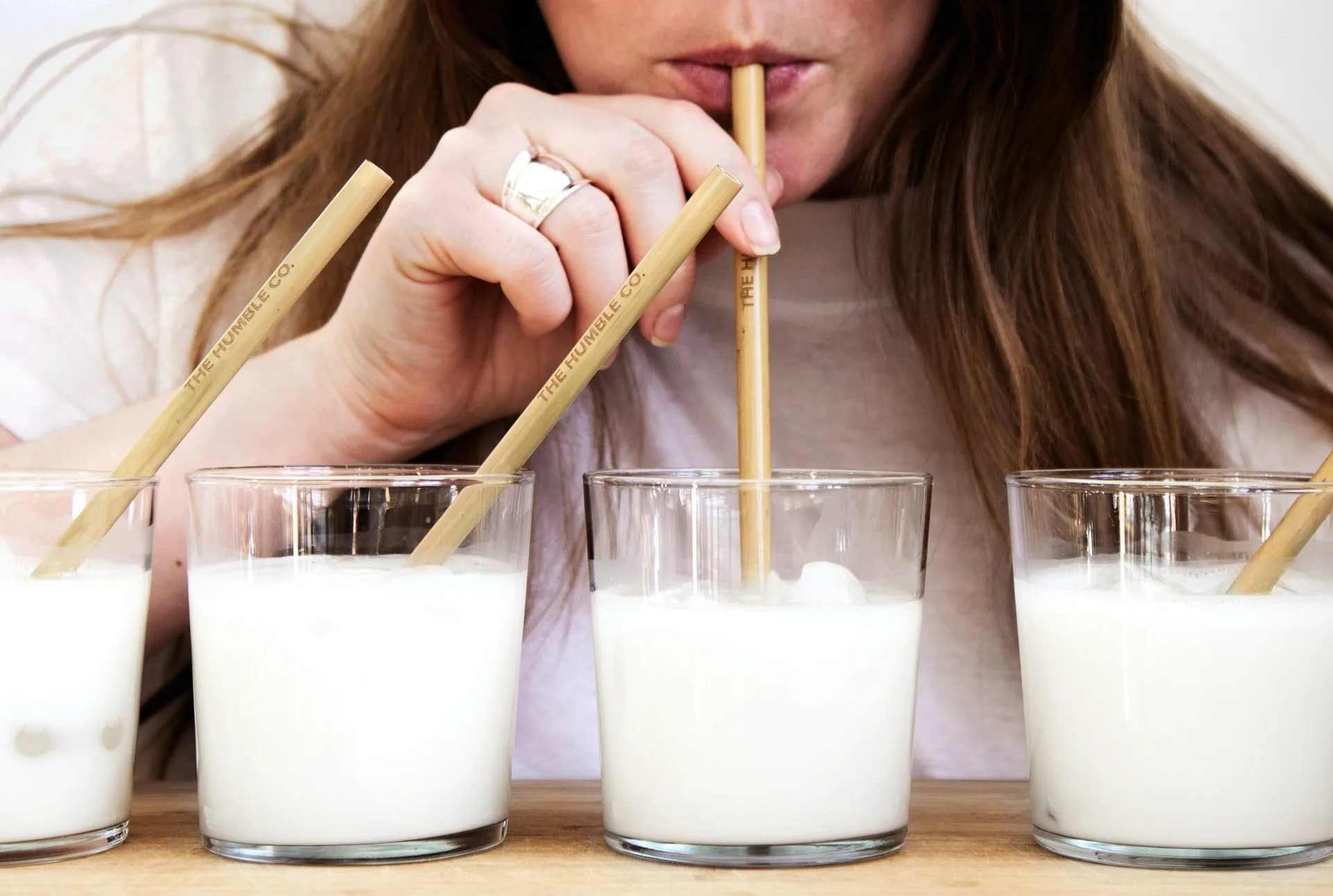You may have noticed it during your latest trip to the supermarket, but there seems to be a dairy revolution going on. In fact, the global non-dairy milk market is projected to reach revenues of more than $38 billion by 2024. So, there obviously is such a huge demand for it.
However, as we know, when there’s such a huge demand for a product in the health and wellness industry, sometimes manufacturers begin to prioritize making a profit over protecting the health of their customers and the environment. This then raises the question of just how healthy are dairy milk alternatives?
But first, should you give up dairy?
Dairy is rich in protein, calcium, potassium, and a host of other nutrients and minerals that can help the body function properly. So why on Earth would anyone want to give it up? Well, there are a few reasons.
1. Allergies: Casein is a milk protein found in dairy, and it triggers a dairy allergy. Symptoms of a dairy allergy can include hives, a rash, vomiting, diarrhea, coughing, or eczema.
2. Intolerance: This is when the body reacts to an ingredient found in dairy products, the most common one being the sugar lactose. Symptoms of lactose intolerance include digestive problems such as diarrhea, abdominal pain, flatulence, and bloating.
3. Ethics: As consumers around the world become more conscious of societal issues, many of them have raised concerns about modern farming methods and their impact on the environment. A 2018 Oxford study found that producing a glass of dairy milk results in almost three times more greenhouse gas emissions than any plant-based milk. It also uses nine times more land than any of the milk alternatives.
4. Dietary choice: Those following a plant-based diet, be it vegan or any other form, make the conscious choice to avoid animal-based products.
Due to the aforementioned reasons, we should be encouraging everybody to switch to dairy milk alternatives, yes? Well, not exactly because sometimes life isn’t always greener on the other side of the milk carton.
The dark side of non-dairy milk
Now, while dairy milk alternatives do seem like a healthier choice than normal dairy, they definitely have some drawbacks that we all need to be aware of.
Drawback #1: Synthetic Vitamins
As mentioned, dairy milk has a host of vitamins and minerals in it, many of which non-dairy alternatives can’t duplicate. Therefore, in an effort to make non-dairy products resemble the nutritional content of dairy milk, manufacturers add isolated, synthetic vitamins to dairy alternatives.
A common calcium alternative found in most dairy alternatives is calcium carbonate. Where does calcium carbonate come from, you ask? One word – chalk. No, I’m not saying you’re drinking chalk but its most common natural forms are chalk, limestone, and marble. This is because calcium carbonate comprises more than 4% of the earth’s crust.
So, is it dangerous? Well, a 2018 study found that calcium carbonate was associated with gastrointestinal side effects, including constipation, flatulence, and bloating. The same study also noted that dietary calcium is more beneficial for health than calcium supplements and that it is also easier to absorb. That said, milk isn’t the only way to get your calcium.
Drawback #2: Sugar, sugar and more sweet stuff
Unfortunately, in order to make the taste of dairy alternatives more palatable, many consumers stuff sugar into their products, causing your blood sugars to spike as much as they would when drinking a can of soda. That said, many brands also offer unsweetened varieties, so it’s important to always go for this option.
Drawback #3: All that MSG
MSG is a common food additive that you’ll find in a lot of products, including dairy alternatives. Unfortunately, like many food additives, MSG can cause a host of problems that include chest pain, heart palpitations, numbness, and even nausea, so it’s best to stay away from it.
Drawback #4. Emulsifiers
Emulsifiers are ingredients used in non-dairy milk to help mimic the texture and consistency of dairy milk. Unfortunately, these food additives have been linked to health issues that include gut inflammation, as well as an increased risk of obesity and metabolic disorders (1).
Common emulsifiers found in non-dairy milk are Xanthan and guar gum – both of which have been linked to health issues.
Drawback #5: Oil- Based
Most milk alternatives are made with some type of oil and some of these oils aren’t exactly great for your health. Canola, safflower and sunflower oil are the most common oils used in the production of non-dairy milk. These oils are not only often genetically modified, but research has indicated that canola oil can contribute to both Alzheimer’s and heart disease (2).
Which dairy alternatives should I go for?
With so many options to choose from, which ones are best for you?
![almond milk [longevity live]](https://longevitylive.com/wp-content/uploads/2019/08/almond-almond-milk-bottle-1446318-jpg.webp)
Almond milk
The Good
Almond milk is low in calories and rich in monounsaturated fatty acids. These fatty acids can help to improve your heart health by reducing your levels of LDL (bad) cholesterol.
The Bad
Almond milk is also low in protein and carbohydrates, and this makes it less nutritionally balanced than cow’s milk.
The Ugly
Not only does almond milk need some help in the nutritional department, but it’s also killing the world’s bee population. Okay, that might be a bit of an over-exaggeration, but it’s not without cause.
Almonds require more water than any other dairy alternative and the need to meet the demand for larger almond crops is placing unsustainable pressure on bees and beekeepers. Around 50 million bees died between 2018 and 201 as a result of these pressures and other environmental threats.
Soy milk
The Good
A study published in the Journal of Food Science and Technology found that soy milk is the most comparable to cow’s milk in terms of overall nutrient balance. It’s also the highest in protein of all the alternative milk options studied, with about 7 to 12 grams (and about 95 calories) per 8-ounce serving. According to the researchers, almond, rice, and coconut “milks” all lacked essential nutrients important for overall health.
The Bad
Soy milk can be a great alternative to dairy milk, but it’s not exactly kind to the environment. The rise in soybean production has driven deforestation, threatened biodiversity, and increased soil erosion.
The Ugly
There’s a lot of concern surrounding soy-based products due to their phytoestrogen content. Phytoestrogens are plant compounds that can mimic the human hormone estrogen and eating them may disrupt hormonal balance, causing health issues.
That said, more research is needed to determine all the positive and negative effects of eating soy.

Oat milk
The Good
Oat milk has become one of the most popular milk alternatives out there and for good reason. It’s high in fiber and vitamins, and this can help to improve your health by reducing your risk for heart disease, and diabetes. It’s also great for bone health.
The Bad
Canola oil is one of the oils used in the production of oat milk. While there are a few benefits of canola oil, research has indicated that it can increase inflammation and affect heart health.
The Ugly
A lot of oat milk produces are actually high in sugar, particularly maltose. Maltose has been found to have an extremely high glycemic index, with a rating of 105 out of 100. To compare, table sugar has a rating of 65, and the high-fructose corn syrup (found in Coca-Cola) has a GI around 65-75.

Photo by Leon Seibert on Unsplash
Coconut milk
The Good
Research has indicated that coconut milk can help reduce inflammation, as well as benefit weight loss by speeding up the body’s metabolism.
The Bad
Not only does coconut oil contain no protein, but it has fewer vitamins and minerals than other kinds of milk. Additionally, it’s also high in saturated fat. Now while there’s still some debate over the dangers of saturated fat, it should be noted that a diet high in saturated fats can put you at higher risk for heart disease.
The Ugly
As coconut trees only grow in tropical climates, the pressure to meet global demand has led to the exploitation of workers in Indonesia, the Philippines, and India. The demand is also increasing the risk of destruction of rainforests.
Rice milk

Photo by Matthew Lakeland on Unsplash
The Good
Rice milk is the least allergenic of milk alternatives, making it easier to be consumed by infants and children. It’s also naturally sweeter than other milk alternatives.
The Bad
While rice milk is naturally sweeter than other milk alternatives, it has the poorest amino acid profile out of all of them.
Additionally, rice milk can contain arsenic (this is because it absorbs more arsenic than other crops). So, it’s advisable to drink rice milk in moderation.
The Ugly
According to a previously mentioned University of Oxford study, rice milk produces more greenhouse gases than any other plant milk.
Read the Label on Milk Alternatives
The non-dairy industry will continue to grow so new brands will keep popping up everywhere. To manage this and stay on top of your health, you need to get used to reading labels.
When buying a non-dairy milk product, make sure that it’s;
- Non-GMO
- Unsweetened
- MSG-Free
- Contains nutrients like vitamin B12 and vitamin D
Here’s to safe and healthy drinking!







![women [longevity live]](https://longevitylive.com/wp-content/uploads/2020/01/photo-of-women-walking-down-the-street-1116984-100x100.jpg)










My concern about switching to non-dairy milk is the increased risk of metabolic disorders (https://www.premiermedicalhv.com/divisions/services/metabolic-disorders/). I know it’s a small switch but diabetes runs in my family, and I’m nervous.